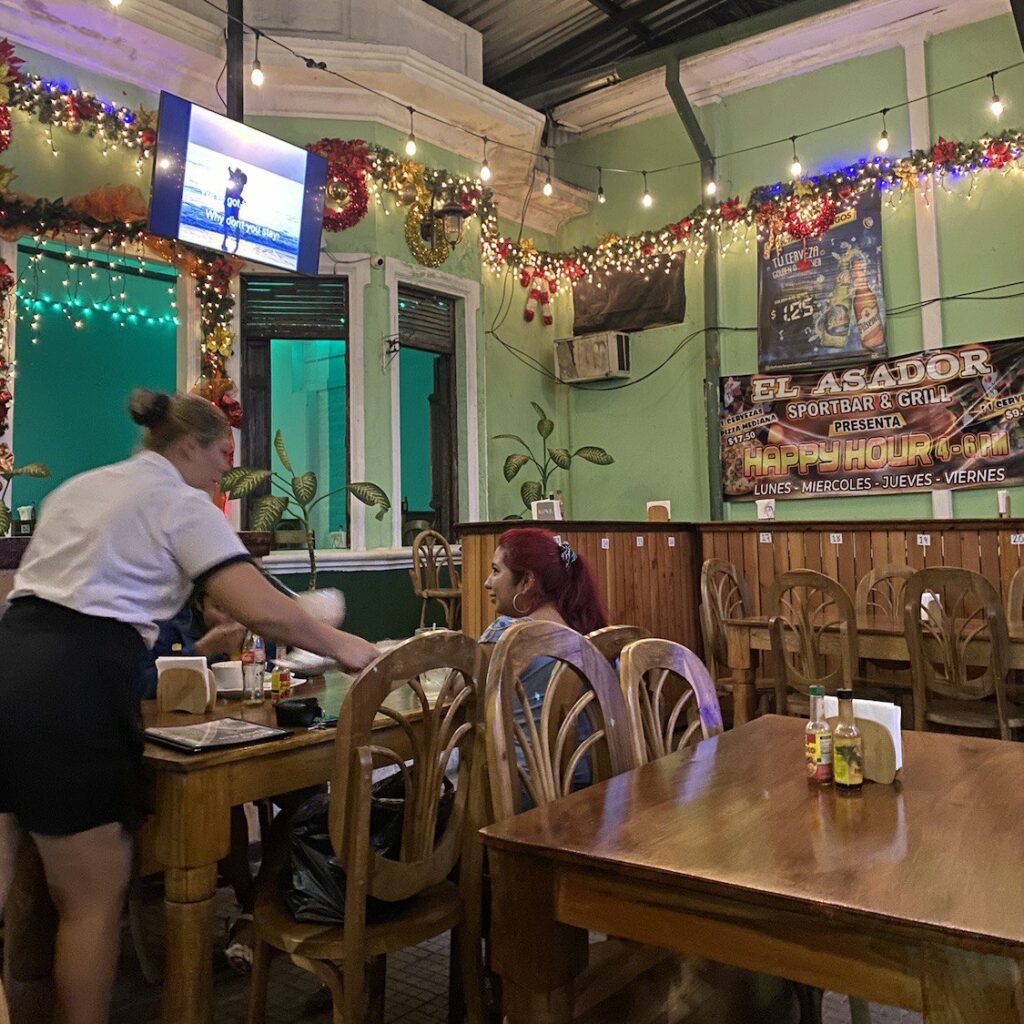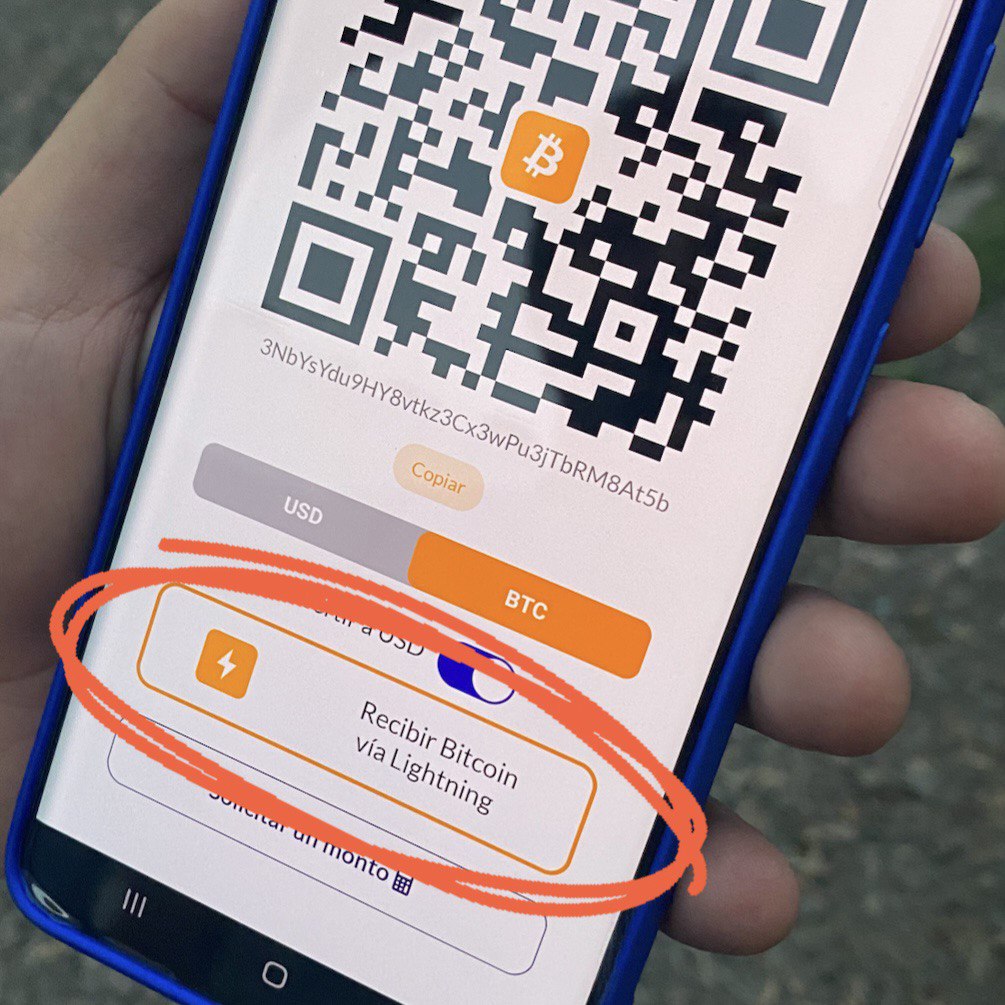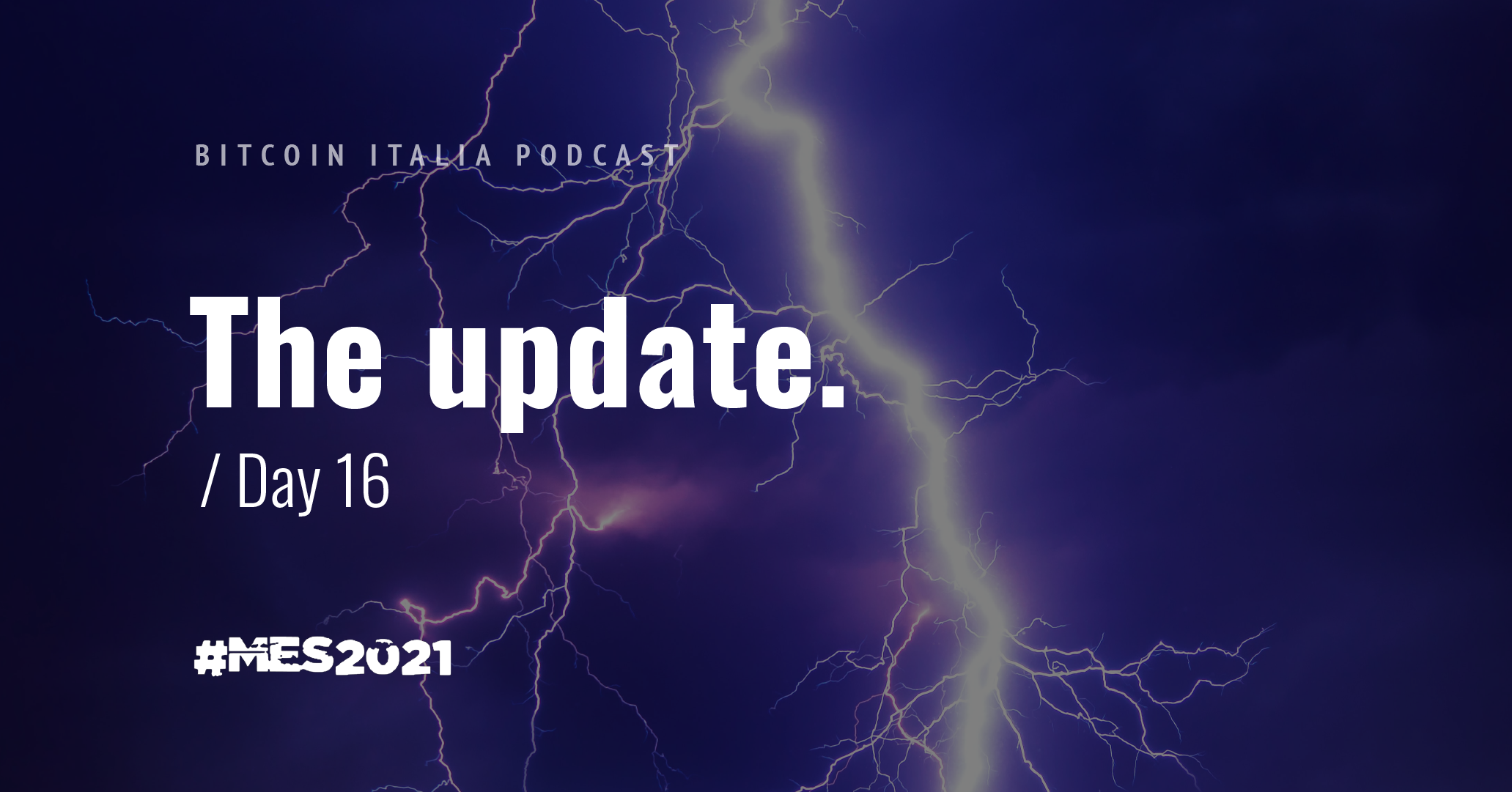

We wake up ready to face a really busy day. Today the microphones are turned on and we have an exploding schedule. At the beginning of the morning there’s the connection with Guybrush from Mission Control, to record the new episode of the Bitcoin Italia Podcast, then we have an hour of live broadcast for a community of crypto lovers, then an interview with an Italian journalist and then we have to record the last episode of the season of Stupefatti with Barbara. When it comes to smart working we have a diploma.
Our hostel has rather limited common spaces so we have breakfast sitting at the table with some of the staff. After my second cup of coffee I start talking to one of them. Young and quite bright. He asks me where I’m from and what I’m doing in El Salvador. When he finds out the object of our mission he lights up. He likes Bitcoin a lot, says he knows it well and has bought some satoshi to hold them. It doesn’t take much to dampen his enthusiasm. I just talk to him about the Chivo wallet, about the fact that it does not give private keys and does not allow the population to achieve full financial freedom. All concepts of which, obviously, he was completely unaware. When I told him about the difference between on-chain transactions and Lightning, he fell off the wagon. He hurries to pull out his smartphone because he wants me to show him what I’m talking about. He unlocks the device, opens the application and… gets an error message. Something is wrong. Chivo shows a sibylline screen where he announces that the service is temporarily unavailable because updates are in progress. Word spreads among his colleagues and everyone checks their phones. All apps are locked. We look on with some concern. If this situation continues for long we are screwed. There’s no other way to put it.
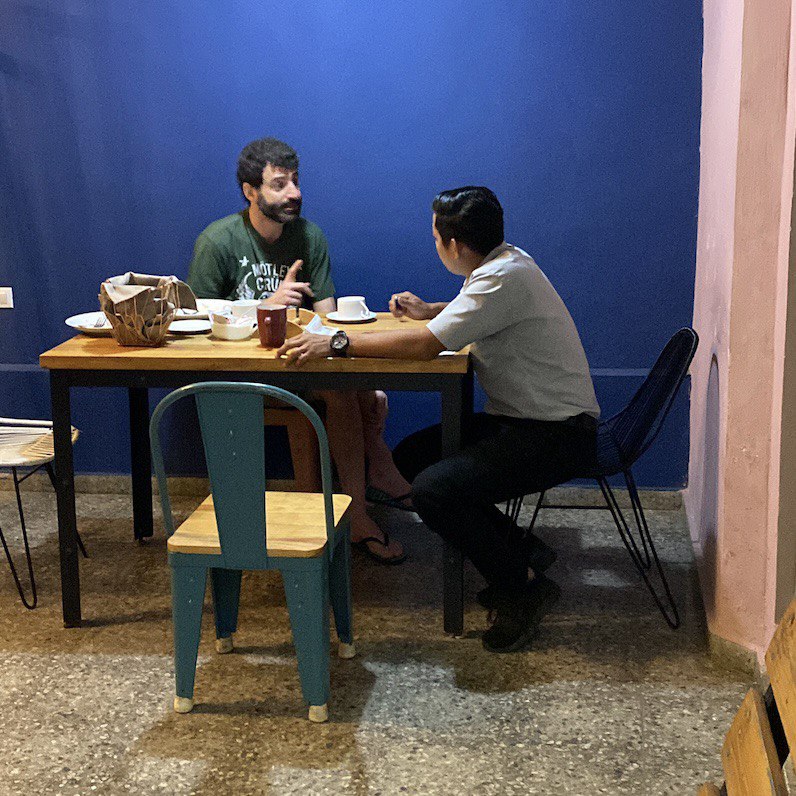
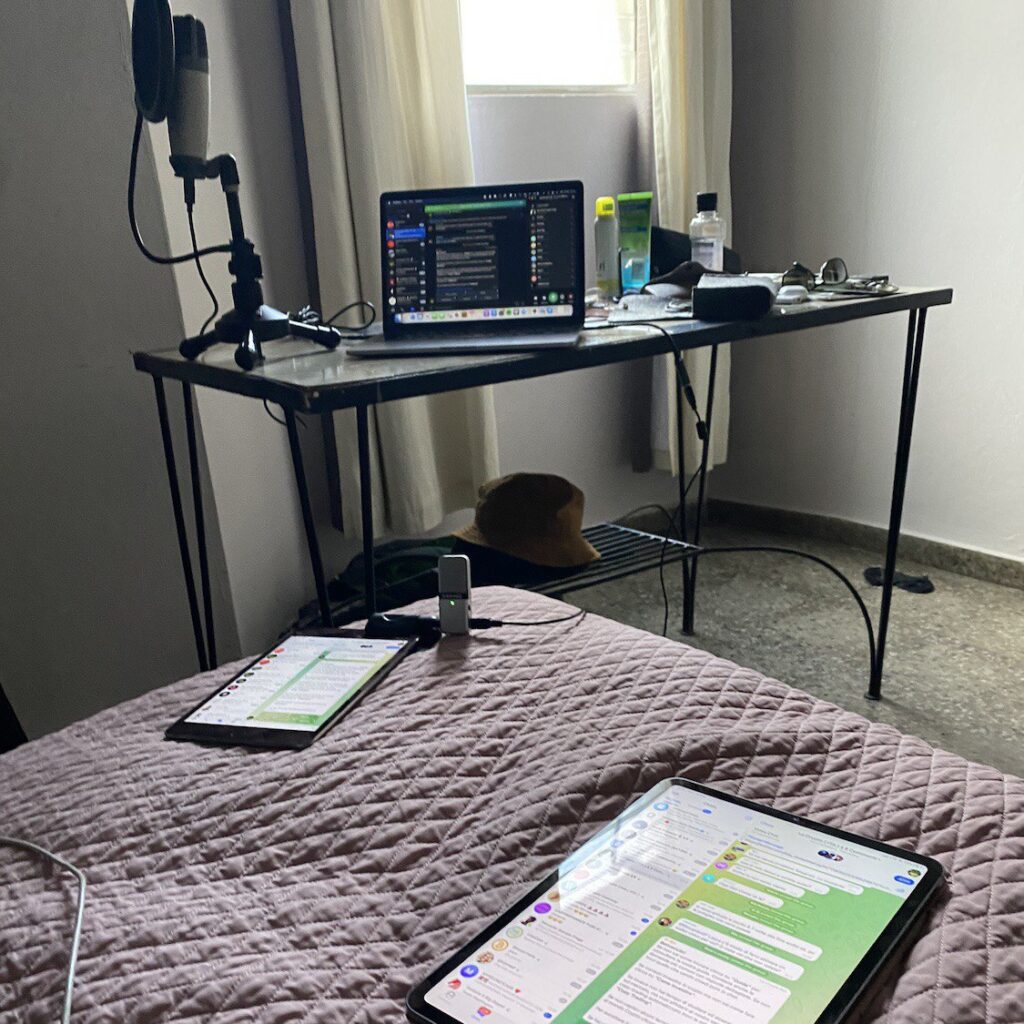
It’s quite a responsibility to have tied the entire population to a single service, because that means that on days like these, if something goes wrong, the entire nation is prevented from making and receiving electronic payments. A distópic novel perspective. Luckily we have several hours of work to do, but we return to our room with the ghost of another fast hovering over us. We shall see.
It’s about four o’clock in the afternoon when, having taken care of all our chores, we poured into the streets, devoured by hunger. We don’t feel like go searching for a place to eat and we remember to have passed a Pizza Hut in the previous days. We know they accept Bitcoin and we want to get through the nutritional formalities as quickly as possible. At the counter we order a vegetarian pizza and with curiosity we watch the saleswoman open Chivo on a company device. We immediately recognize the error screen, the same one we had seen in the morning. After hours the service still seems to have not been restored. The woman disappears into the kitchen to find the manager to figure out what to do. We look over our shoulders: the usual queue behind us. Here, sooner or later, they lynch us.
After a few minutes the store manager comes back with another device and shows us another system. It is IBEX developed by our friends Carlino and Mario. It works like a charm, we know it well. And in fact the transaction is Lightning fast. Today we eat.
The paradox is that large chains like this one, which have equipped themselves with a system infinitely superior to the state system, are forced to also have and predominantly use Chivo, because being the most popular app among the population and having it known problems of interaction with other systems, if you don’t have it in your cash register it becomes a problem for business. Absurd. A real technological bottleneck.

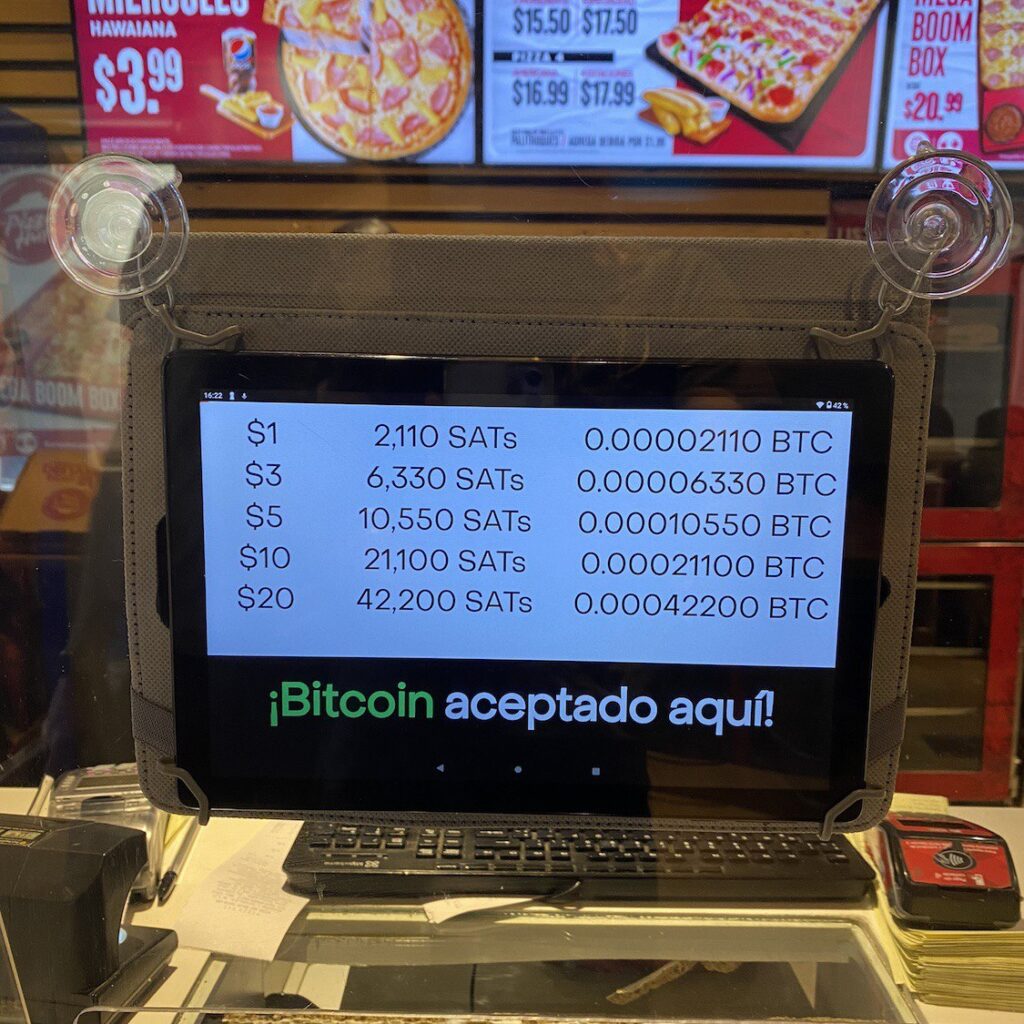
We fed ourselves and resumed our wanderings. A little later we spot a building all painted blue with large white letters N on the facade and an inscription: Nueva Ideas. We know what it is. It’s the party founded by Bukele, which today actually governs the country. A kind of Forza Italia in Latin sauce. Recently born and led by the charismatic leader that we know, it has achieved an enormous consensus among the people. We take some pictures but the temptation is strong. We enter.
The rooms are rather bare, Buki towers over the walls and we are warmly welcomed. We meet Alex, a young section manager. He is very curious and enthusiastic about Bitcoin. We end up talking about Chivo and I ask him if there is any news about the status of the service. He opens it on his phone and some news is indeed there. An update is now available. He runs it in front of our eyes. It must be important because after reinstalling it, the application asks you to perform two-factor authentication again. You have to re-enter your data, the code that arrives on the email and also the one that arrives via SMS. Rather laborious. When the app finally starts up again we immediately notice some significant differences in the user interface. We ask to access the section dedicated to Bitcoin payments and we’re thrilled to see the option for Lightning ones nice and big, just below the on chain QR code (not yet by default though). This makes us excited. Maybe our life in El Salvador, from now on, will be a little easier. We exchange numbers, say goodbye to Alex and decide to find a bar to celebrate.
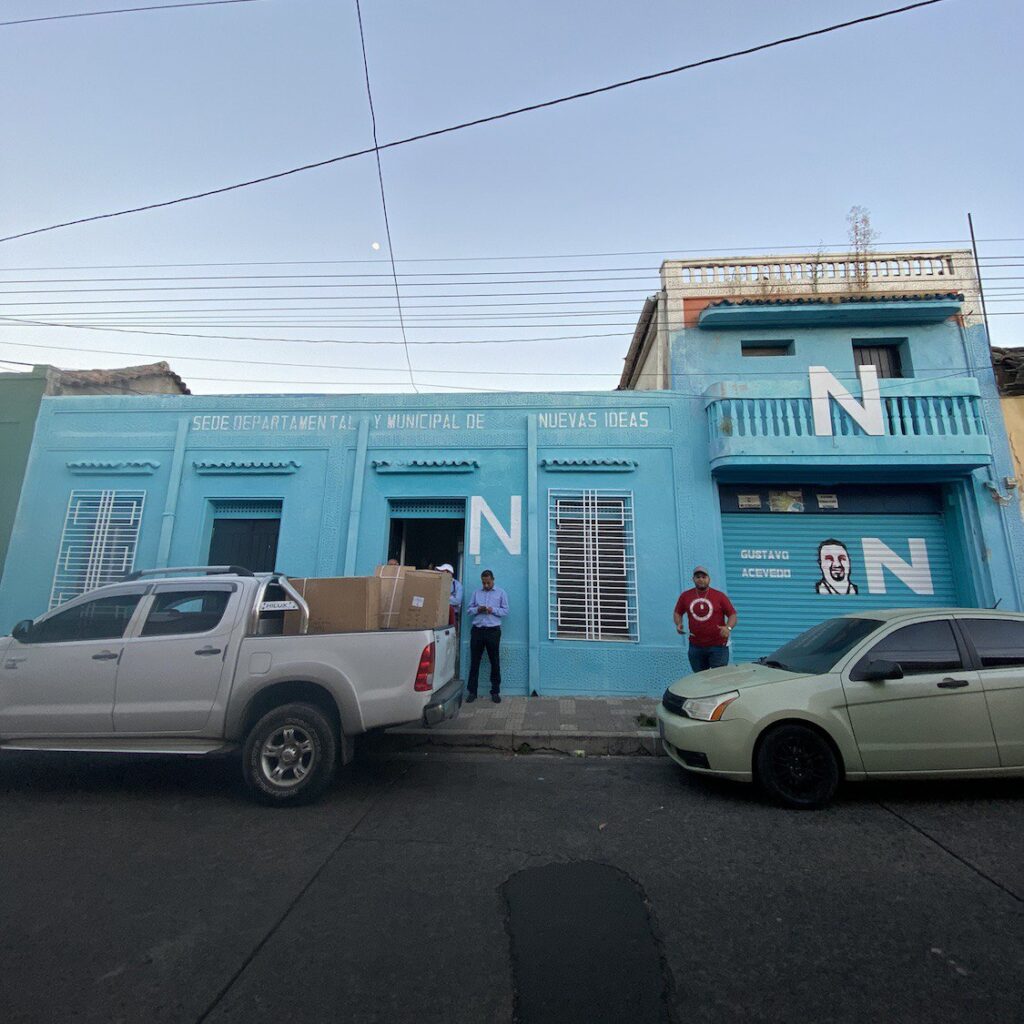
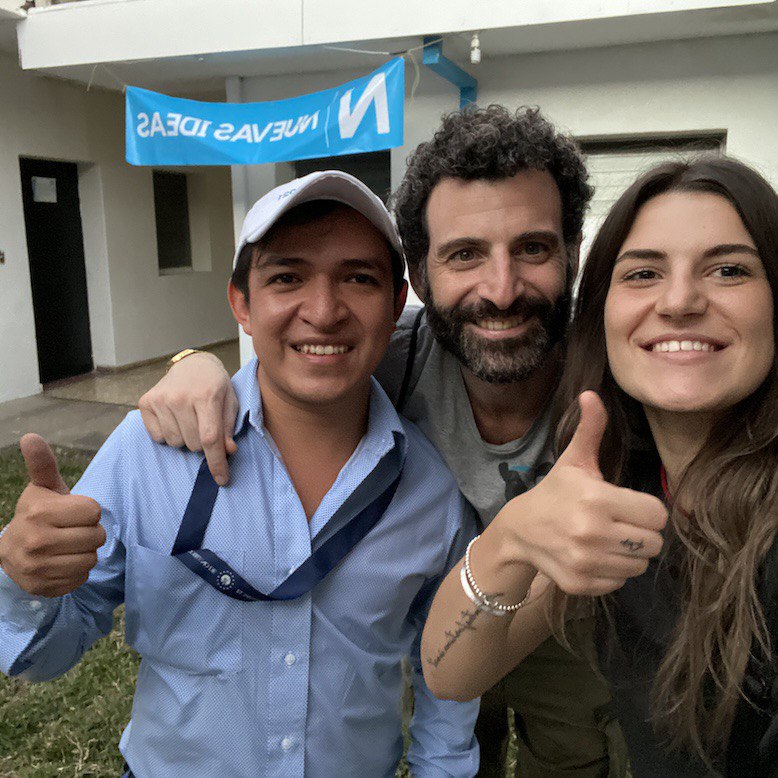
We find it within a short time. It’s a delightful dive bar, perhaps the worst in Santa Ana, which is why it immediately wins us over. The clientele seems to come out of a Tarantino movie, the decor is beautifully eighties and you can smoke. An Eden.
We immediately notice that a box is sticking out from under the counter from which the waitress is selling cigarettes to customers. It’s perfect because we’re almost out of ours. They sell them loose, like in 1950’s Italy and we are about to pay for them in Bitcoin, like in the world of 2050. Only in El Salvador can something like this happen. We buy three for a dollar.
At the time of payment the cashier pulls out her smartphone but her Chivo is locked, she asks her colleagues but they all are. We explain that they have to update and a great deal of codes and authentications begins. After about twenty minutes a Lightning address arrives. We pay, say goodbye and go out into the coolness of the evening.
Our life in El Salvador may then not be that much easier if we have to get three-quarters of the population to upgrade.
